It was almost midnight when Omar Abdel Jabar heard a knock on the gate of his home in the Iraqi city of Mosul. His family froze at the sound of the rap on the gate. It was late summer 2014 and ISIS had taken over the city three months earlier. Late night visitors were rare and the family feared it was militants. Then the knock came again.
Just months earlier, Jabar had lived a relatively normal existence in Iraq’s second largest city. He worked as a carpenter and shared a simple but comfortable two-story home in a middle class neighborhood of Mosul with his wife, son, parents and four younger siblings. His wife had just become pregnant with their second child.
But in June 2014, the Sunni jihadist group ISIS had taken his city along with swaths of northern Iraq. Thousands of Iraqi troops fled their posts as the militants advanced. In Mosul, where the population was largely Sunni, a deep-seated distrust of the army and widespread resentment of the Shi’ite-led government in Baghdad meant the city fell relatively easily to ISIS. Thousands of families fled, but like many other Sunni Arab families, the Jabars stayed. Jabar says his family never supported ISIS, “but we didn’t have anywhere to go.”
That summer night, Jabar and his father slowly opened the gate to find a small figure outside, draped head-to-toe in a black niqab. “Please help me,” she pleaded. “They are raping me.” Jabar pulled her inside, hoping no one had seen her.
She spoke quietly, clearly fearful. She said her name was Nadia and that she was from Kocho, a Yazidi town on the southern edge of Sinjar Mountain that had been overrun by ISIS. She told them she had been captured by the militants, brought to Mosul and sold in a slave market along with most of the women and girls from her village. The 19-year-old had been raped, beaten and sold numerous times over weeks before escaping the house where she was held captive, thanks to an unlocked door.
ISIS has killed thousands of Yazidis and kidnapped thousands more, forcing many women and children into slavery. Nadia’s story, however, is one known by thousands of people around the world. She has become an internationally recognized survivor of ISIS brutality, a U.N. Goodwill Ambassador who was nominated for the Nobel Peace Prize in 2017. In her book, The Last Girl: My Story of Captivity, and My Fight Against the Islamic State, Nadia Murad lays out in unsettling detail how she was raped, sold and abused by the extremists and the precariousness of her escape. (Murad declined to be interviewed for this article.)
In the book, she pays homage to Jabar and his family. “I don’t know why he was good,” Murad wrote, “and so many others in Mosul were so terrible.” But Jabar’s decision would come at a heavy price. And his fate, when compared with hers, shines a light on the cruel randomness of refugee policies—that lives brought together can be set in haphazard, opposing directions.
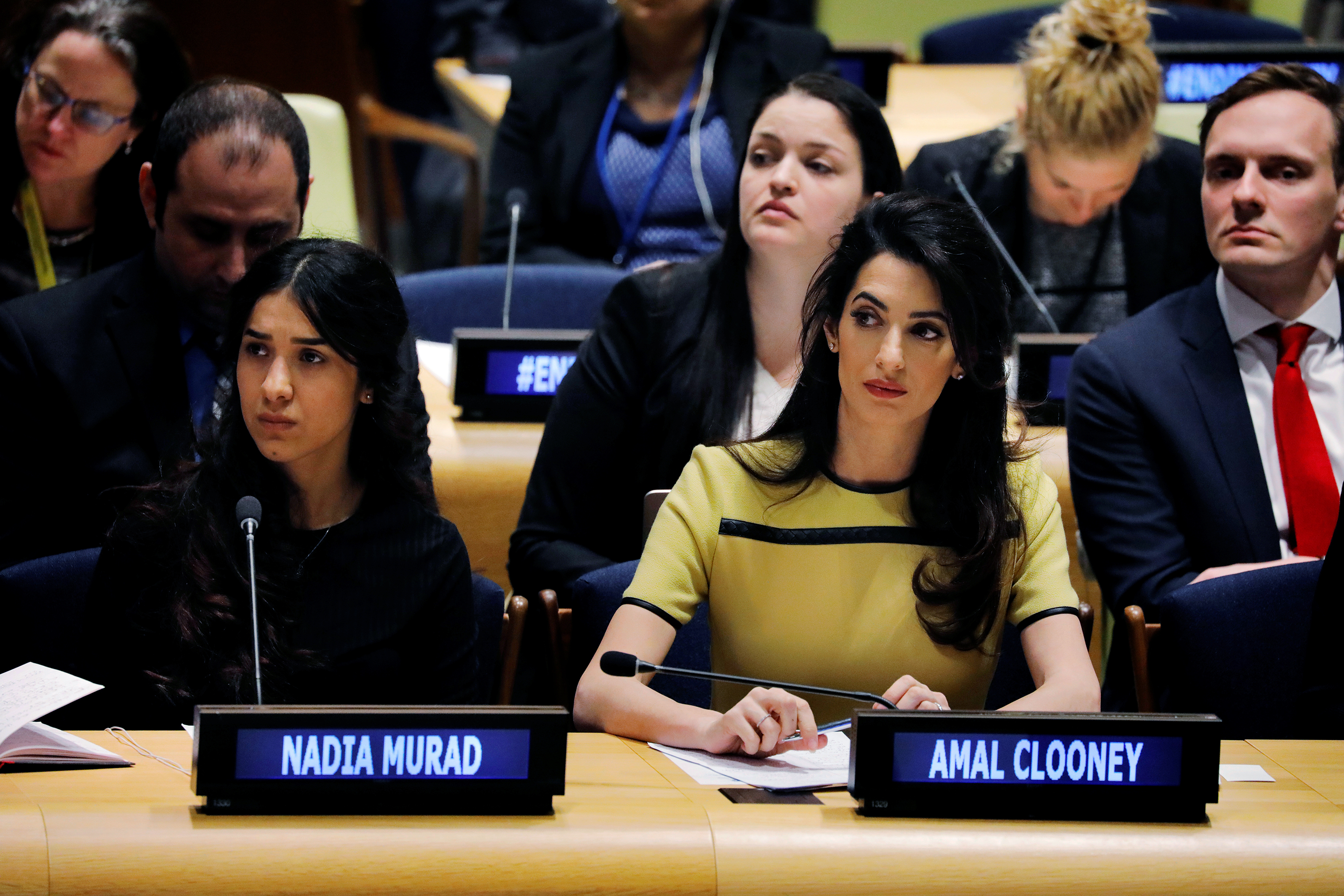
Nadia’s Escape
Murad had walked for hours in the streets of Mosul before choosing to knock on the Jabars’ gate. In her book, she describes how the streets got poorer and the houses more simple.
The Jabars’ heavy orange gate looks no different than the others lining the street, but the choice would prove decisive.
At the time, the neighborhood was full of families sympathetic to the jihadist group. ISIS hadn’t yet imposed its strict version of Islamic law or begun the public executions that came to characterize its authoritative rule. Instead, the militants took advantage of sectarian animosity and won favor with Sunni residents by removing the unpopular army checkpoints that had been erected by the Shi’ite-led government in Baghdad.
Being caught aiding a sabiyya, the name ISIS gave to the thousands of women and girls it enslaved, carried a heavy price—possibly death and posters outside offered a $5,000 reward to citizens who returned an escaped sabiyya.
Murad woke up early the next morning terrified. “My first thought was that I had to get out of there,” she wrote. Most of the Yazidi women who escaped their captors in Mosul were returned by the families they went to for help and for many of their Jabars’ neighbors, who had cheered the militants’ arrival, the reward would be too tempting.
“We never considered it,” Jabar says. It was simply the right thing to do. The family told Murad to stay in the house and not even to venture to the courtyard.
Hiding her in their home was risky, but getting her out of Mosul would prove far more dangerous. They contacted Murad’s brother 80 miles away in a refugee camp and made a plan to smuggle her out.
Jabar’s cousin made the woman an ID card with a Sunni Arab name. It said she was from Kirkuk, a city about 100 miles away, still in the hands of western-friendly Kurdish forces. ISIS now controlled all the roads in and out of Mosul. They planned to tell the militants that she was Jabar’s wife and they were going to visit her parents in Kirkuk.
In her book, Murad recalls how she spent the night memorizing her new identity—her Sunni Arab name, the name of her father, her birth date and details about Kirkuk, a city she had never even visited. One small mistake could be fatal.
At the first checkpoint out of the city, the ISIS fighters pulled their taxi over and began searching the vehicle. Jabar’s heart beat hard and fast in his chest. If they were caught, Murad would be returned to slavery and punished for trying to escape, and his fate would likely be much worse.
She sat quietly in the back seat, only her eyes showing beneath the niqab, while Jabar answered questions. The militants took the IDs and began the questioning: Where were they going? Why were they going to Kirkuk? When would they come back? “I was terrified,”Jabar says. From the car Murad saw her photo, beside the photos of two other Yazidi women in the guard post. “Seeing my photo confirmed that they were actively looking for me,” she wrote.
Perhaps it was ISIS’s ultra conservative rules that allowed them to pass. They didn’t ask Murad to lift the niqab and show her face, something that would have surely given them away. They questioned Jabar, but asked her only a few questions directly. Most Iraqis could spot the difference between the accent of an Arab from Kirkuk and Yazidi from Kocho. “I had no idea how someone from Kirkuk was supposed to sound,” Murad wrote.
They passed several more checkpoints manned by ISIS before the taxi driver stopped the car and told them to get out. They walked around a barrier and down the empty stretch of road between the last ISIS checkpoint and the one controlled by the Kurdish forces.
They said goodbye the next day in a hotel in Erbil, the capital of the Kurds’ semi-autonomous territory. It would be the last time they saw each other. The day after Jabar returned to Mosul, there was a heavy knock on the door. This time it was ISIS.
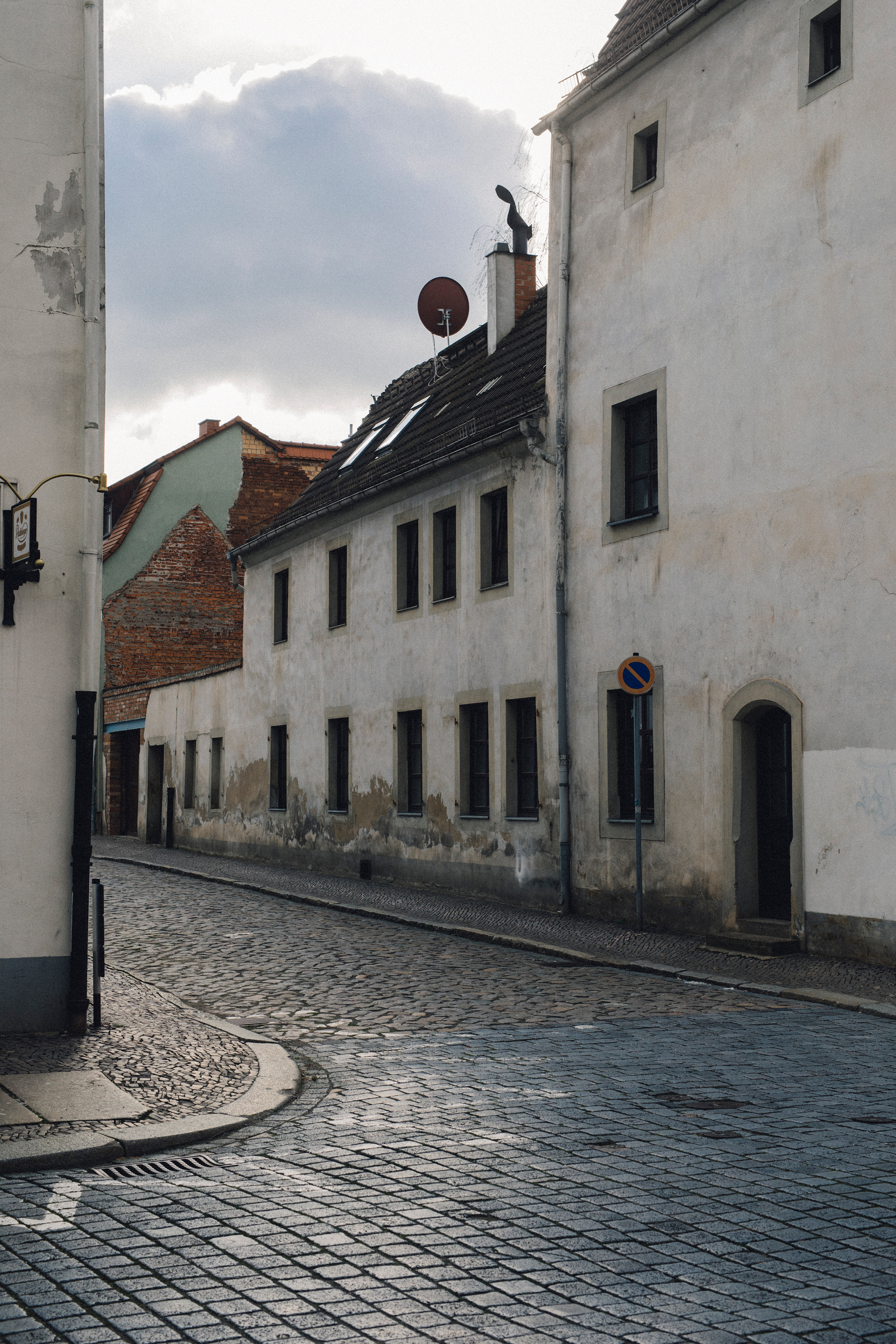
The Consequences
More than three years later, in the Jabars’ home in Mosul, his father walks up the narrow staircase to the rooftop where his son made a dramatic escape. “He jumped to there,” his father tells TIME, pointing to a neighbor’s roof below. From there, Jabar fled down an alley. Iraq was clearly no longer safe for him.
In the weeks after Jabar fled Mosul, his family was questioned by ISIS but managed to convince the militants that Jabar had acted alone, and promised to disown their son. In October, when TIME visited Mosul, the family was still nervous, saying that they didn’t want pictures of them or their home to be published. They hid Murad here before moving her to Jabar’s sister’s house on the other side of the city, fearing someone had seen her. That house was hit by an airstrike as Iraqi forces, backed by the U.S., fought ISIS out of Mosul, killing Jabar’s sister and her entire family. And today, while ISIS no longer controls the city and the iconic black flag has come down, many Iraqis say that sympathizers and sleeper cells linger.
Jabar borrowed almost $7,000 from an uncle and a friend arranged to have him, his pregnant wife and son smuggled out of Mosul in a gas tanker. The goal was Europe, where ISIS couldn’t reach him. But the trip would prove too hard for Jabar’s small son and pregnant wife, Randa, and she returned to Mosul in November 2014. During TIME’s visit in October 2017, Randa sat quietly on the couch with their two children at her side, as Jabar’s father pulled out a report from Kurdish officials confirming Jabar’s role in Murad’s rescue.
After several weeks in Turkey, Jabar headed for the Bulgarian border. In Sofia, he was arrested along with other Iraqi and Syrian asylum seekers. For Bulgarian police his act of heroism—and the very real threat he faced if he returned to Iraq—meant nothing. “This is where everything fell apart,” Jabar says.
While Jabar sat for three months in a Bulgarian jail cell, Murad began to tell her story to journalists in a refugee camp, in northern Iraq, where she stayed with the surviving members of her family. Thousand of Yazidis had been killed and tens of thousands displaced from their homes by ISIS. “I cried everyday…When I dreamed, it was always about being returned to ISIS and having to escape again,” Murad recalls in her book. “We learned how to make the most of what the aid agencies offered.”
In 2015, Murad was one of 1,000 women selected to go to Germany through a program run by the regional government of Baden-Württemberg. It aimed to help some of those who had suffered the greatest at the hands of ISIS. Thousands of other Yazidi survivors of ISIS were left behind.
In December 2015, she told her story to the United Nations in Switzerland in an effort to raise awareness about the crimes of ISIS. “Their aim was to eliminate all Yazidis under the pretext, that according to them, we are infidels,” Murad said.
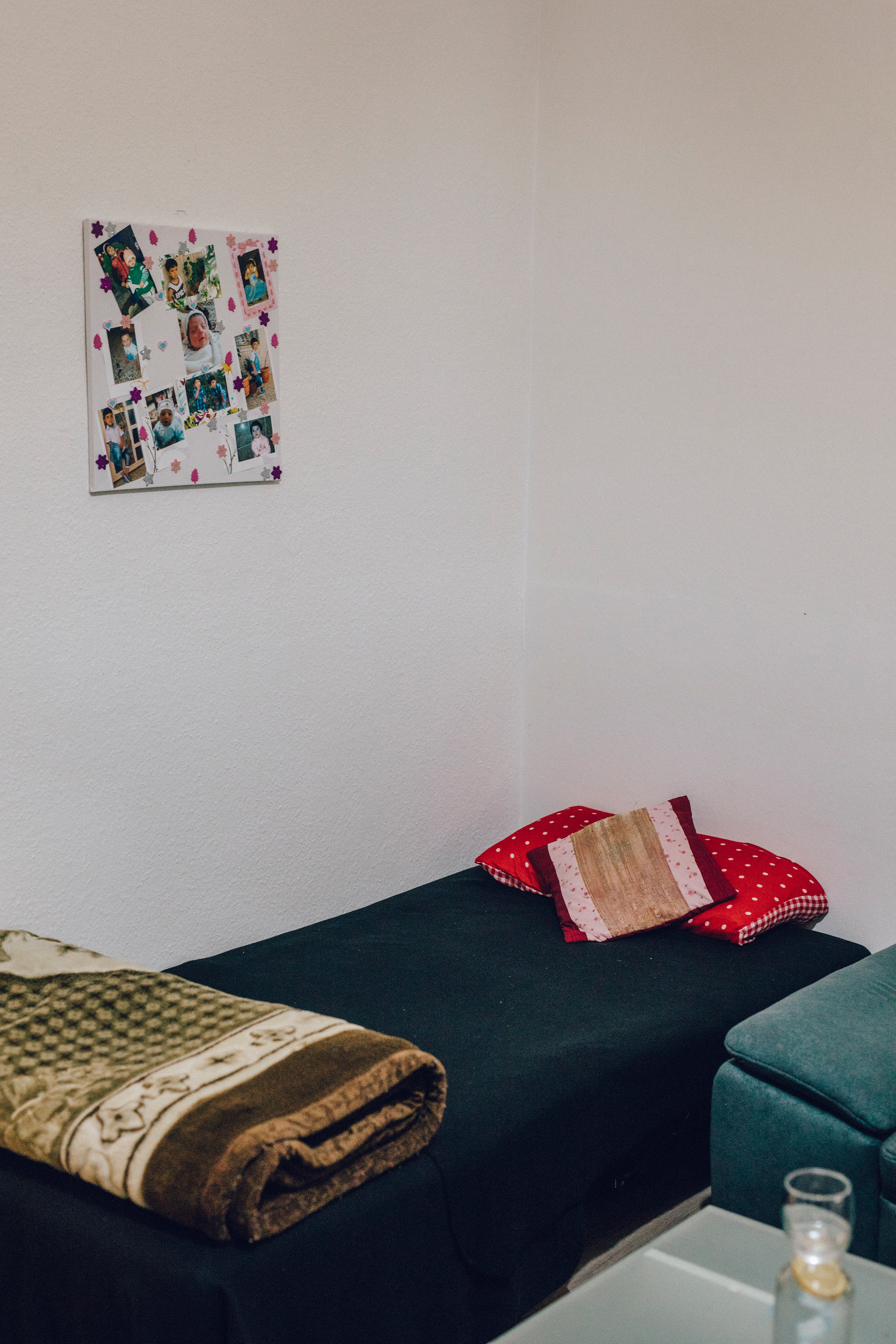
Families Divided
In her book, Murad describes the simple, happy life she lived before ISIS came to Sinjar. She went to school and dreamed of one day being a teacher or working in beauty salon. She spent her time with her niece Kathrine, applying makeup and admiring women at family weddings. “Then I would ask the bride for a photograph, which I added to a collection I kept in a thick green photo album,” Murad wrote. “I imagined that, when I opened my salon, women would flip through that album, looking for the perfect hairstyle.”
At 25, her life looks nothing like the one she dreamed of. “When I first got to Germany, I begged [my brother] Hezni all the time to let me come back, but he told me to give Germany a chance,” Murad wrote.
Murad has met foreign dignitaries and heads of state and campaigned alongside human rights lawyer Amal Clooney for ISIS to be tried for war crimes; the details of her suffering are known by millions of people. “I want to be the last girl in the world with a story like mine,” she wrote.
Now, Murad prefers to focus on the future. A representative from her organization, Nadia’s Initiative, said that talking about the past is too difficult and has negative effects on her health, and she prefers to focus on the work she is doing to help mend the shattered Yazidi community.
Jabar’s story, by contrast, is known by almost no one. He arrived in Germany and applied for asylum in March 2015. More than three years later he still hasn’t been granted refugee status. He does have a form of temporary protection that gave him a visa to stay in Germany until May 2018. He’s now applied for a renewal but German authorities requested his Iraqi passport, something he doesn’t have. He’s not sure what will happen.
In the one-room apartment where he now lives in Torgau, Germany, Jabar video calls his family in Mosul. His sons hardly recognize him. His wife, Randa, holds the couple’s youngest son, Yahya, now three years old, in front of the screen. “Say, ‘hi baba,’” she prompts him. Yahya just stares back. Jabar has never actually met his son, never had the chance to hold him. His wife was still pregnant when he escaped.
He takes the phone to show Yahya a stuffed bear on the shelf. Jabar bought it for him for his second birthday but hasn’t found a way to get to Mosul yet. Yahya smiles with a little giggle at the sight of the stuffed toy. “A few days ago, he asked me ‘are you my father?’” Jabar recalls.
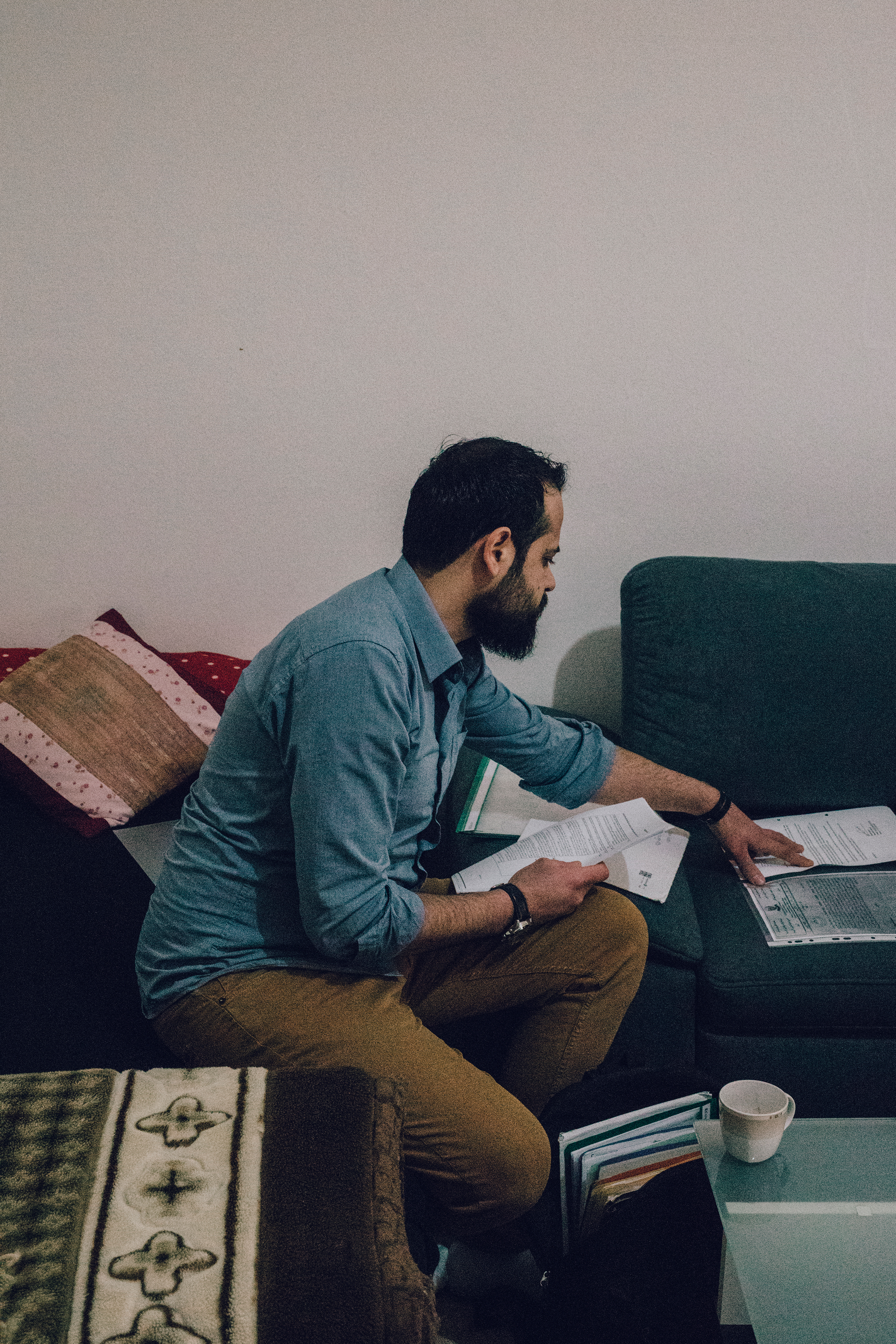
Refugee Realpolitik
Germany received almost 1 million asylum seekers in 2015 and has since struggled to process the massive number of applications. “It’s some kind of lottery..like a game of roulette,” says Volker Maria Hügel, co-founder GGUA-Refugee aid, a German asylum advocacy organization. “The asylum procedure isn’t fair, it isn’t good and people are rejected when they should have got protection.”
Hügel says those making the decisions aren’t well enough trained or informed to decide the fate of refugees like Jabar. The political climate has also changed since 2015 when Germans stood on the streets holding signs reading “refugees welcome.” Chancellor Angela Merkel is feeling the backlash for her open-armed welcome to asylum seekers in 2015 and the country has seen rise in support for the right-wing, anti-immigration Alternative for Germany party.
Now, a dispute over asylum policies is threatening to bring down Merkel’s coalition government. Some of her governing partners want her to take a harder line against migrants, particularly ones who have not yet received refugee status. Jabar is aware that it is making his situation even more precarious.
“Iraqi refugees are facing more rejections,” Jabar says. “Merkel is backing away from her policies.”
In April, German Development Minister Gerd Müller traveled to Iraq in an effort to secure the Iraqi government’s cooperation in returning and re-integration Iraqi refugees.
“You can’t win elections when you say ‘we want refugee protections,’” Hügel says.
Some fear with the Iraqi government declaring Iraq ISIS-free, Iraqis like Jabar may begin to be sent back. But for Jabar, return to Iraq is not an option. He says he received calls and threats online from ISIS supporters, until he changed his phone number and all his social media accounts. His family says until recently they would also receive calls in Mosul, threatening their son if he returns. “My friend told me don’t even come to Turkey,” says Jabar. “They can get you here.”
Even in Germany, Jabar doesn’t feel completely safe. Last year, he says got an anonymous message saying they knew he was in Germany and they were coming for him. “I don’t leave the house a lot,” Jabar says. “Mostly, I go to class and come home.”
The walls of his small apartment are covered with photos of his sons and family, smiling kids and happier times. ISIS may no longer control Mosul but it still controls his life. “We all know ISIS aren’t really gone,” says Jabar’s friend Hassan Salim, also from Mosul and living Germany. “There are sleeper cells. We all know that.”
Jabar still doesn’t know who told ISIS about what he had done. As he and Murad tried to reach her family in Erbil that day in 2014, Kurdish intelligence at the checkpoint filmed them telling the story of her escape, later broadcasting it on local television. Even though his face was blurred, he says he would be recognizable to those who knew him and his family in Mosul.
All he wants, he says, is to bring his family to join him in Germany. Life in the small German town, with 20,000 people, is lonely and isolating. “I just want to have them next to me,” he says. He can’t even apply for family reunification without refugee status.
He says, for the most part, the residents of Torgau are kind, but near the river swastikas are spray painted on buildings next to “PEGIDA”, the acronym for Patriotic Europeans Against the Islamization of the West, an anti-immigration group.
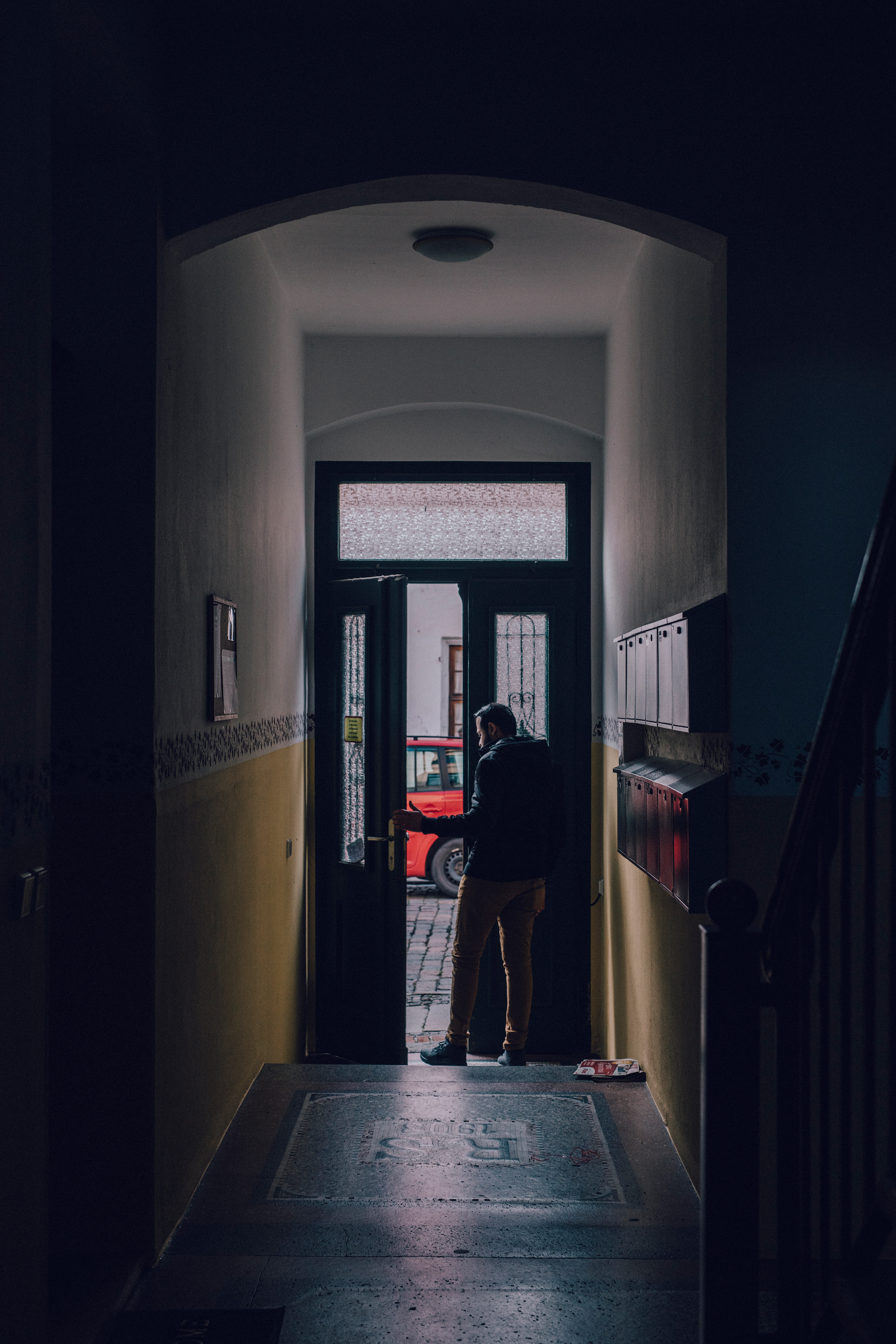
Jabar pulls out a binder filled with asylum documents, letters and papers from his lawyer. Among them is a letter from Murad, to Jabar’s lawyer. The letter states that its contents are “strictly confidential” but it recognizes the risks Jabar took save her.
Jabar is a key character in her book, known under the pseudonym Nasser. While ISIS was still in control of Mosul, identifying Jabar and his family put them at risk of retribution. “When I look back to my own escape—the unlocked door, the quiet yard, Nasser and his family in the neighborhood full of Islamic State sympathizers—I shiver at how easily it could have gone wrong,” Murad wrote.
For Jabar, the future looks bleak. He says he often thinks about ending his own life. His friend Salim says he’s had to stop him twice. The chances of him being granted asylum or having his family join him in Germany anytime soon, seem slim. He says he hasn’t talked to Murad in months. They now live just a few hundred miles apart in Germany, not so much further than the distance between her village of Kocho and his home in Mosul in Iraq. They spoke a few times in recent years but Jabar says the phone number he had for her seems to have been disconnected.
Still, he says, he doesn’t regret what he and his family did. “You should have seen the happiness on her family’s face,” Jabar says. “Anyone would do it.”
Collard reported from Mosul, Iraq and Torgau, Germany.
- Donald Trump Is TIME's 2024 Person of the Year
- Why We Chose Trump as Person of the Year
- Is Intermittent Fasting Good or Bad for You?
- The 100 Must-Read Books of 2024
- The 20 Best Christmas TV Episodes
- Column: If Optimism Feels Ridiculous Now, Try Hope
- The Future of Climate Action Is Trade Policy
- Merle Bombardieri Is Helping People Make the Baby Decision
